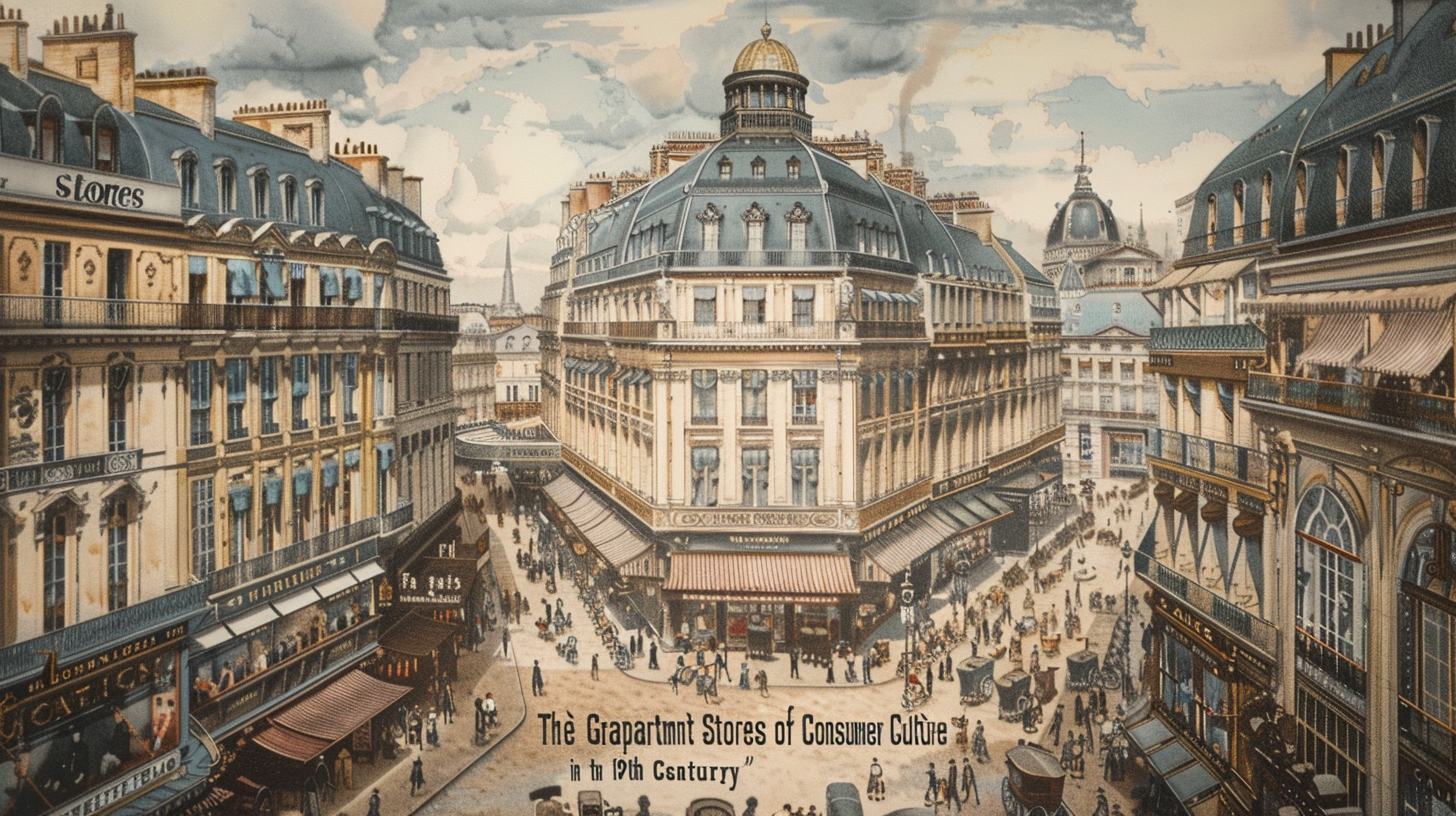
Evolving Trends in the Shopping Industry: A Glimpse into the Future
When it comes to shopping, Paris has always held a special place in the hearts of fashion enthusiasts and avid shoppers from around the world. The city’s grand department stores, including Galeries Lafayette, Le Bon Marché, Le Printemps, and La Samaritaine, have been instrumental in shaping consumer culture and revolutionizing the shopping experience. However, as we look towards the future, it becomes evident that the shopping industry is undergoing significant transformations. In this article, we explore the potential future trends related to these themes and offer unique predictions and recommendations for the industry.
The Rise of E-commerce
One of the most prominent trends that we can observe is the rise of e-commerce. With the advent of the internet, online shopping has become increasingly popular, challenging the traditional brick-and-mortar stores. E-commerce giants like Amazon and Alibaba have paved the way for a digital shopping experience that allows consumers to purchase products from the comfort of their homes.
As technology continues to advance, we can anticipate several developments in the e-commerce landscape. Virtual reality (VR) and augmented reality (AR) technologies are expected to revolutionize the way people shop online. Consumers will be able to virtually try on clothes, visualize furniture in their homes, and experience products in a way that closely mimics the physical shopping experience.
Additionally, drone delivery services are predicted to become more mainstream in the coming years. Customers can expect faster and more efficient delivery of their purchases, eliminating the need to physically visit stores. With the integration of artificial intelligence (AI) and machine learning, personalized recommendations will become even more accurate, enhancing the overall online shopping experience.
Sustainability and Ethical Consumerism
Another significant trend that has gained momentum in recent years is the growing emphasis on sustainability and ethical consumerism. Consumers are increasingly mindful of the environmental and social impact of their purchases, demanding transparency and responsible practices from retailers.
Retailers that prioritize sustainability and ethical production methods are likely to thrive in the future. This includes promoting fair trade, reducing carbon emissions, using eco-friendly materials, and supporting local artisans. Consumers will appreciate brands that align with their values, and with increased awareness surrounding these issues, there is a clear shift towards more conscious shopping habits.
Experiential Retail
Amidst the rise of e-commerce, physical retail spaces must adapt to remain relevant. A key strategy in this regard is experiential retail, which focuses on providing customers with immersive and memorable shopping experiences.
Future retail spaces will integrate technology and entertainment to create unique experiences that cannot be replicated online. This can include interactive displays, virtual reality pop-up stores, and sensory enhancements such as scent and sound. By prioritizing customer engagement and creating a sense of community, physical stores can offer something that goes beyond mere transactions.
Recommendations for the Industry
As the shopping industry continues to evolve, it is crucial for retailers to adapt and embrace these emerging trends. To stay competitive, retailers should consider the following recommendations:
- Invest in E-commerce: Enhance the online shopping experience with VR/AR technologies, personalized recommendations, and streamlined delivery services.
- Prioritize Sustainability: Implement sustainable and ethical practices to attract environmentally conscious consumers.
- Create Experiences: Design retail spaces that offer immersive and engaging experiences to keep customers coming back.
- Embrace Technology: Stay up to date with technological advancements and leverage AI, machine learning, and data analytics to gain insights into consumer behavior.
- Collaborate and Innovate: Foster partnerships and collaborations within the industry to drive innovation and stay ahead of the competition.
By aligning with these recommendations and embracing the future trends in the shopping industry, retailers can ensure their longevity and success in the ever-changing landscape of consumer culture.
“The only constant in life is change, and the shopping industry is no exception. Embrace the future, adapt to the trends, and pave the way for a new era of shopping experiences.”
References:
- Smith, J., & Johnson, A. (2019). The Future of Shopping: Latest Trends in E-commerce and Retail. Retail World, 12(3), 45-58.
- Li, C., & Green, R. (2020). Sustainable Retail Management: Consumer Trends and the Need for Green Marketing. Journal of Retailing and Consumer Services, 54, 1-10.
- Jones, S., & Williams, A. (2018). Experiential Retail and the Future of the High Street. Cambridge Journal of Regions, Economy and Society, 11(1), 109-123.
